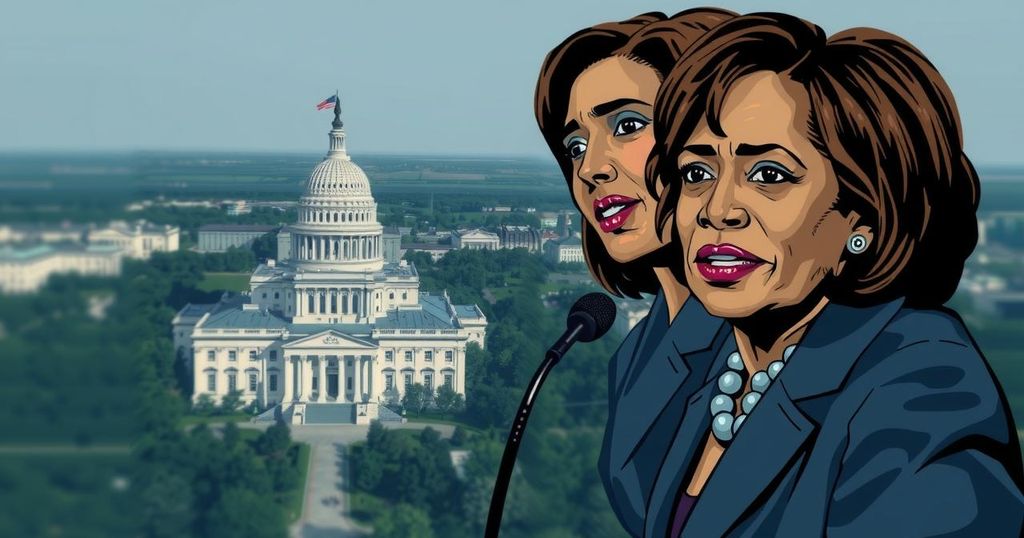Kamala Harris’s Campaign: Failure Amidst Public Discontent

Kamala Harris’s campaign strategy aimed to align with patriotism and cross-party support, using endorsements from former Republicans. However, this approach faltered amid widespread public dissatisfaction with the political establishment, as polls revealed ongoing discontent with the direction of the country and declining trust in institutions. The culmination of these factors rendered her campaign ineffective in an anti-establishment political climate.
The strategy behind Kamala Harris’s campaign presented an appealing vision: to sidestep the unappealing progressive policies of the past and instead promote a narrative centered on American patriotism. By embracing the support of former Republican leaders like Liz Cheney, her campaign aimed to create a broad coalition. However, this approach, while inspired by successful historical movements against right-wing populism, ultimately faltered due to an inherent contradiction—Harris aligned herself with the political establishment during an era of significant public discontent. Public sentiment has long indicated a pervasive dissatisfaction with the nation’s trajectory, with numerous polls showing that between 50 to 75 percent of Americans feel the country is heading in the wrong direction. This sentiment has remained consistent over the years. The most recent Gallup survey revealed only 25 percent of Americans expressing satisfaction with the current state of affairs. Furthermore, public confidence in major institutions has declined dramatically since the early 2000s, with trust in government now sitting at a mere 22 percent. The factors contributing to this pervasive discontent are numerous. Major events, such as the Iraq War and the 2008 financial crisis, wounded public trust. Recent issues, including controversial pandemic responses, a jolting military withdrawal from Afghanistan, and ongoing economic challenges, have compounded the situation. Moreover, perceptions of institutional ineptitude—where leaders fail to acknowledge or rectify these issues—further exacerbate public frustration. In portraying herself as a defender of the existing political structure against former President Trump’s populist rhetoric, Kamala Harris positioned herself poorly against a backdrop of widespread discontent. Voters’ increasing disillusionment with established political figures on both sides of the spectrum undermined her campaign, which ultimately struggled to resonate during these turbulent times.
The text discusses the challenges faced by Kamala Harris in her electoral campaign, particularly her alignment with the political establishment during a period when American voters expressed significant disillusionment with traditional political structures. It explores the public’s discontent with various issues that have arisen over the past decades, including wars, economic crises, and institutional failures, all of which have collectively diminished voters’ trust in government. This context is vital to understanding Harris’s electoral strategy and its repercussions in a climate favoring anti-establishment sentiments.
In conclusion, Kamala Harris’s campaign strategy, which sought to unify diverse political factions under the banner of patriotism and establishment values, ultimately contradicted the prevailing public sentiment against the establishment. As dissatisfaction with government and its institutions runs deep, her positioning as a defender of the status quo hindered her ability to connect with voters longing for change. The convergence of economic strife and a general loss of trust in leadership suggests that voters are increasingly resistant to traditional electoral pitches, demanding a reassessment of strategy among establishment figures.
Original Source: www.nytimes.com







